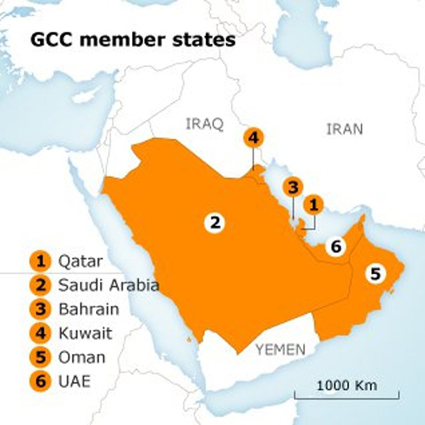
GCC countries are increasingly moving towards becoming knowledge-based economies according to a recent PwC report. Despite some recent progress, the volume of research publications remains relatively low compared to countries outside of the GCC and still a long way behind more established knowledge economies, said PwC in its latest report.
Sally Jeffery, Global Education Network Leader at PwC said, “Knowledge-based economies start from a stable foundation of research, and a well-functioning research ecosystem is really challenging to build. You need patience, a significant funding investment and a lot of effort and determination. The many different players involved need to work in unison so that new ideas have every chance of getting out of the lab and into real-life applications. This requires significant collaboration with international institutions, as well as between regional governments and private industry. Recent survey results and discussions with aspiring research universities have helped us identify four key challenges within the GCC research ecosystem. To succeed in this endeavor, governments in the GCC will need to develop a clear national research agenda, establish supportive legal frameworks, distribute research funding effectively, incentivize academic/industry collaboration and empower institutions and individuals. Meanwhile, universities also need to further invest in their research facilities.”
The PwC report found that in the GCC, Saudi Arabia, the UAE and Qatar are producing the majority of research, with the largest proportion coming from KSA universities (23,448 publications). When looked at in terms of size of population, Qatar is performing well regionally, with a ratio of 1.6 publications to every thousand inhabitants. In the UAE, seven universities are dominating the country’s research output.
GCC governments are taking actions at a strategic level to increase the number of post-doctoral researchers and Ph.D. students, but they have a long way to go. For example, in the KSA the number of Ph.D. students per 1,000 inhabitants (aged between 15-64) is 0.34 compared the OECD average of 1.25, and 2.69 for a more mature research economy such as the UK. It also isn’t easy given the global war on research talent, the region’s top researchers are easily tempted to work in other countries where the ecosystem is more mature and they stand a greater chance of making an impact more quickly. In the KSA, for example, 13,000 Ph.D. students study abroad, almost double the amount who choose to remain to conduct their research domestically. Research is highly competitive and timing is all important.
Jeffery added, “A country’s ability to value, absorb and apply new knowledge depends greatly on the investment it makes in research and development and how it builds local capabilities to innovate and gain a competitive advantage from that knowledge. If all of these key components can work together more effectively, then the GCC will enjoy a much greater chance of success in building a thriving academic research ecosystem and a more sustainable knowledge-based economy.”
pwc.com
الاستثمار في المؤسسات البحثية قاعدة للانطلاق نحو التنويع الاقتصادي في دول مجلس التعاون الخليجي
أصدرت بي دبليو سي تقريراً جديداً حول بيئة الاستثمار في دول مجلس التعاون الخليجي مشيرة إلى أن التحول إلى اقتصاد المعرفة يتزايد في دول مجلس التعاون الخليجي. وقد ذكر التقرير أنه على الرغم من التقدم الجزئي الذي شهدته المنطقة مؤخراً في مجال الأبحاث، لازال حجم الأبحاث المنشورة ضعيف نسبياً مقارنة بالأبحاث التي يتم نشرها في الدول الأخرى خارج دول مجلس التعاون الخليجي. وما زالت هذه الأبحاث متأخرة كثيراً عما تنشره الدول التي تتبنى اقتصاد المعرفة منذ فترة.
وفي هذا الصدد، صرحت سالي جيفري، القائد العالمي لشبكة التعليم في بي دبليو سي، قائلةً: “ينطلق اقتصاد المعرفة من وجود قاعدة ثابتة ومستقرة لإجراء الأبحاث، فلا شك أن بناء منظومة بحثية جيدة الأداء أمر ينطوي على الكثير من التحديات. فالأمر يحتاج إلى صبر وضخ استثمارات تمويلية ضخمة وبذل الكثير من الجهد والتحلي بقدر كبير من العزم والمثابرة. وتحتاج العديد من المؤسسات العاملة في هذا المجال إلى تحقيق التناغم والانسجام فيما بينها بحيث تتاح للأفكار الجديدة جميع الفرص الممكنة للخروج من الطور النظري وتطبيقها على أرض الواقع. ويتطلب ذلك قدراً كبيراً من التعاون مع المؤسسات الدولية إلى جانب التعاون أيضاً بين الحكومات الإقليمية والقطاع الخاص”.
وأضافت: “لقد ساعدتنا النتائج التي توصلنا إليها مؤخراً من خلال الدراسة الاستقصائية التي أجريناها والمناقشات التي عقدناها مع ممثلي الجامعات البحثية الطموحة، وجود أربعة تحديات رئيسية داخل المنظومة البحثية بدول مجلس التعاون الخليجي. وللنجاح في هذا المسعى، يتعين على الحكومات في دول مجلس التعاون الخليجي وضع أجندة بحثية وطنية واضحة، وإعداد أطر قانونية، وتوزيع تمويل الأبحاث توزيعاً فعالاً، وتحفيز التعاون الأكاديمي/ التعاون بين القطاعات، وتمكين المؤسسات والأفراد. كما يتعين على الجامعات في الوقت نفسه زيادة الاستثمار في مرافقها البحثية “.
و أشارت نتائج التقرير الصادر عن بي دبليو سي إلى أن المملكة العربية السعودية والإمارات العربية المتحدة وقطر هي الدول التي تُصدر غالبية الأبحاث في دول مجلس التعاون الخليجي، مع استحواذ الجامعات السعودية على النسبة الأكبر من هذه الأبحاث (بواقع 23448 منشوراً بحثياً[2]). كما توصل التقرير إلى أن قطر تتمتع بأداء جيد على المستوى الإقليمي بالنظر إلى حجم السكان، حيث تبلغ نسبة ما تنشره من أبحاث 1,6 منشور لكل ألف نسمة. وفي دولة الإمارات العربية المتحدة، أشار التقرير إلى أن هناك سبع جامعات تهيمن على إصدار الأبحاث في البلاد.
وعلى صعيد آخر، أشارت نتائج التقرير إلى أن حكومات دول مجلس التعاون الخليجي تتخذ بعض الإجراءات على المستوى الاستراتيجي من أجل زيادة عدد الباحثين الحاصلين على شهادات الدكتوراه والطلاب الدارسين للحصول عليها، ولكن ما يزال أمامها شوطاً طويلاً يتعين عليها أن تقطعه. فعلى سبيل المثال، نسبة عدد طلاب الدكتوراه في المملكة العربية السعودية لكل 1000 نسمة (من ما تتراوح أعمارهم بين 15 و64 عاماً) هي 0,34، مقارنةً بالمتوسط المحدد من قبل منظمة التعاون الاقتصادي والتنمية والبالغة 1,25 بالنسبة لهذه الفئة العمرية، و2,69 للاقتصاد البحثي الأكثر تطوراً، مثل اقتصاد المملكة المتحدة. والأمر ليس بالسهل أيضاً إذا ما نظرنا إلى الحرب القائمة عالمياً لاستقطاب المواهب البحثية – فمن السهل استقطاب كبار الباحثين في المنطقة للعمل في دول أخرى حيث تكون فيها المنظومة البحثية أكثر تطوراً وتتيح لهم فيها فرصة أكبر لإحداث تأثير بوتيرة أسرع. ففي المملكة العربية السعودية، على سبيل المثال، يدرس 13000 طالب من طلاب الدكتوراة في الخارج، أي ما يقرب من ضعف عدد الدارسين الذين اختاروا البقاء لإجراء أبحاثهم محلياً. ففي القطاع البحثي يعد عامل التنافسية و الوقت دورأً بالغ الاهمية.
و أضافت السيدة سالي قائلةً: “تعتمد قدرة أي دولة على تقييم المعارف الجديدة واستيعابها وتطبيقها اعتماداً كبيراً على الاستثمارات التي تضخها في مجال الأبحاث والتطوير. كما تعتمد ايضاً، على كيفية بنائها للقدرات المحلية من أجل الابتكار واكتساب ميزة تنافسية من تلك المعرفة. وفي حال التمكن من توظيف جميع هذه العناصر الرئيسية للعمل معاً بفاعلية أكبر، فسوف تتاح لدول مجلس التعاون الخليجي فرصة أكبر للنجاح في بناء منظومة بحثية أكاديمية مزدهرة واقتصاد قائم على المعرفة يتميز بقدر أكبر من الاستدامة”.
Add to Favorites 


















